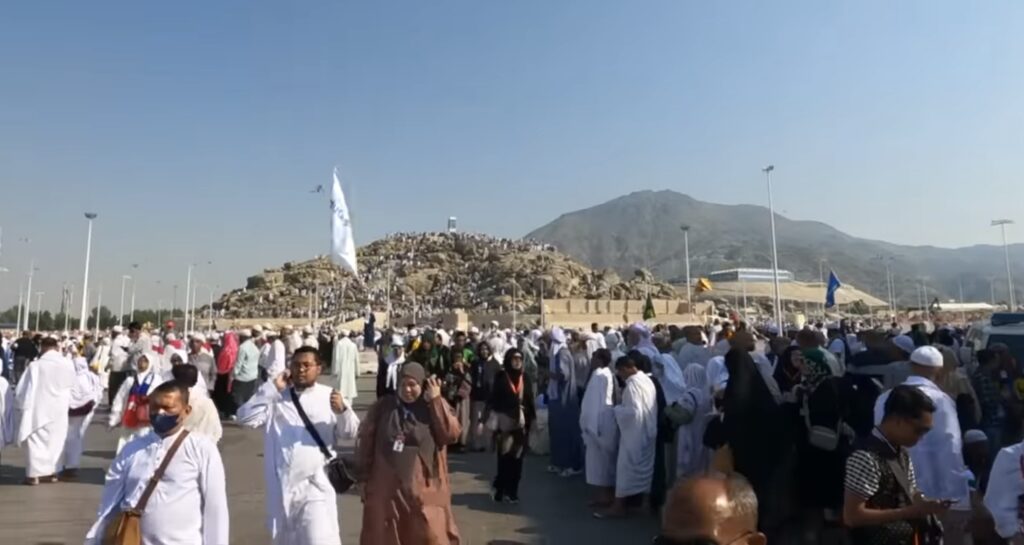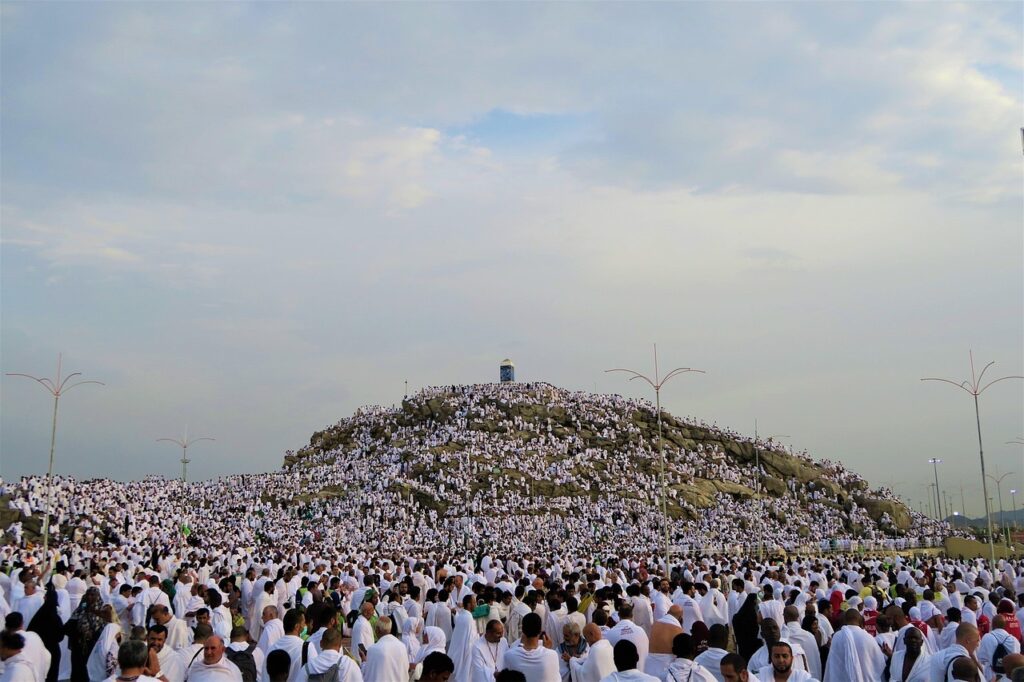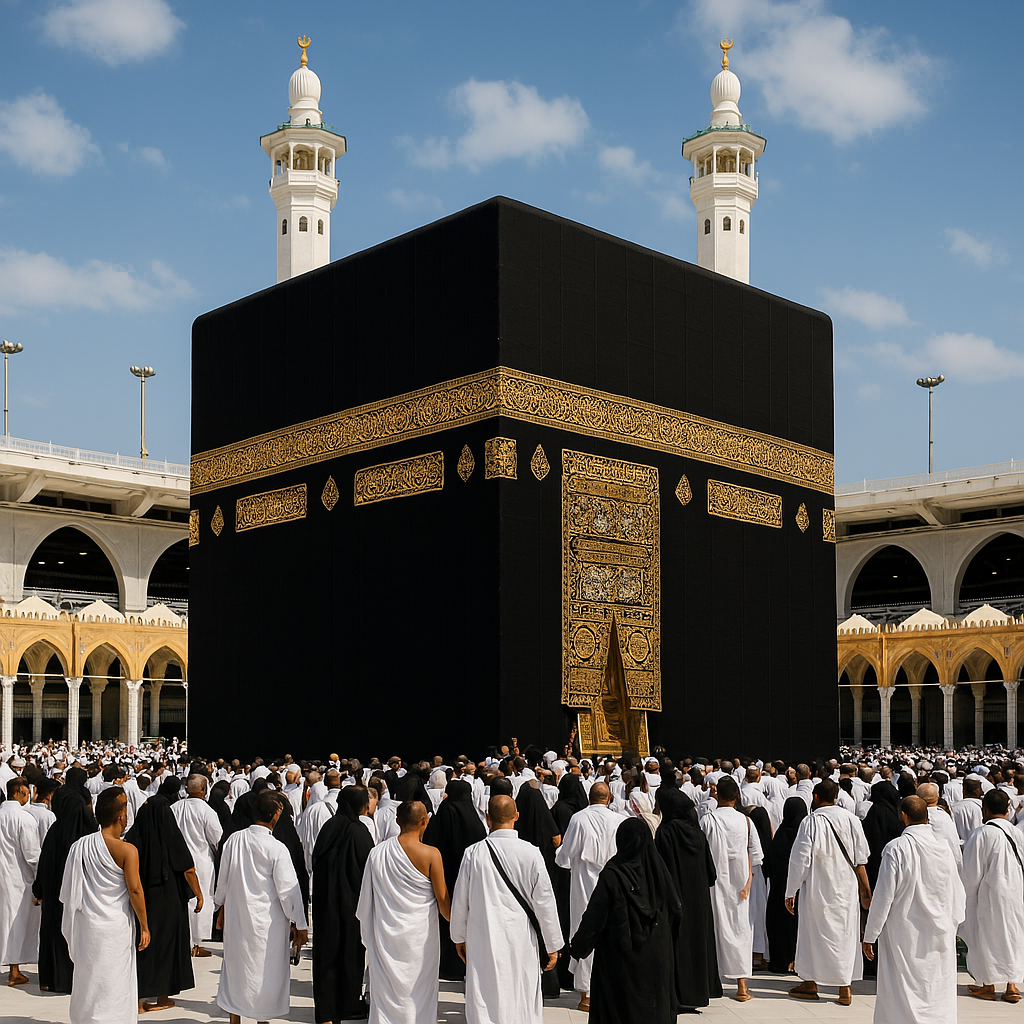
A Guide to Gaining Divine Blessings
The day of Arafah | What is Dhul Hijjah’s ?-Discover meaningful activities other from the Hajj! Fast, recite the Qur’an, donate, and do Qurbani to maximise Islam’s holiest 10 days (Dhul Hijjah).
The first 10 days of Dhul Hijjah have the best benefits! This significant text shows the things that Prophet Muhammad (SAW) said people should do to get closer to Allah (SWT) and receive His blessings: fasting, remembering, reading the Qur’an, giving to others, and making sacrifices.
Not able to do Hajj? The key to God’s gifts is the first 10 days of Dhul Hijjah. To get huge spiritual benefits, learn important things like Arafah fasting, more dhikr, focusing on the Qur’an, Sadaqah, and Qurbani.

Table of Contents
The day of Arafah | What is Dhul Hijjah’s
The first ten days of Dhul Hijjah (The day of Arafah) hold a special place in the Islamic timetable. These days present an extraordinary occasion to draw near to Allah( SWT), seek His remission, and earn immense spiritual prizes, indeed for those who are unfit to perform Hajj.
The Prophet Muhammad( SAW) said
“ There are no days during which righteous deeds are more cherished to Allah than these ten days. ” (Bukhari)
This period is unlike any other — acts of devotion and kindness are multiplied in price, allowing us to not only elevate our standing with Allah( SWT) but also to foster lasting habits that ameliorate our character and faith. Whether it’s adding acts of charity, abstaining from dangerous gestures , or simply being further aware in prayer, these blessed days are the perfect time to renew our commitment to Islam.
Let’s explore meaningful ways to profit from this sacred season.

1. Embrace Fasting
Fasting during the first nine days of Dhul Hijjah, especially on the Day of Arafah (9th Dhul Hijjah), is largely recommended. This day holds immense spiritual significance, with the Prophet (SAW) saying
“ Fasting on the Day of Arafah expiates the sins of the former time and the coming time.”(Muslim)
Following the Sunnah, numerous Muslims choose to dine on the first Monday and two Thursdays during Dhul Hijjah. The price is multiplied, and the act itself is a form of spiritual sanctification and devotion.
2. Constantly Flashback to Allah( SWT)
During these ten days, engage constantly in dhikr—the remembrance of Allah (SWT). The Prophet (SAW) prompted religionists to recite
• Tahleel Laa ilaha illallah (There’s no deity but Allah)
• Takbeer Allahu Akbar (Allah is Great)
• Tahmeed Alhamdulillah (all praise is due to Allah)
• Tasbeeh Subhanallah (Glory be to Allah)
Fill your days with these words of praise and gratefulness. Not only do they bring you near to Allah (SWT), but they also serve as a constant memorial of His mercy and greatness. Also, make plenty of dua (solicitation)—with both ease and difficulty — as this strengthens your bond with your Creator.
The Prophet (SAW) said
“ Whoever desires that Allah respond to him during difficulty should make frequent prayers when at ease.”(Tirmidhi)

3. Consolidate Your Connection with the Qur’an
Reciting the Holy Qur’an these days offers unparalleled prizes. Indeed, reading a single letter brings immense benefit. The Prophet (SAW) said
“ Whoever reads one letter from the Book of Allah will earn a good deed, and that good deed is multiplied by ten.” Tirmidhi)
Use this time to deepen your bond with the Qur’an by reading and understanding it.
You should read a summary and think about the messages it contains. Understanding the messages it contains can enrich your life and reinforce your faith. As you read the Qur’an, think about how its lessons can be applied to your life. This spiritual exercise can make your life here and in the next one better.
4. Make an offering of your Qurbani
Dhul Hijjah, a time for Qurbani, honours Prophet Ibrahim’s loyalty, as he was ready to sacrifice his son for the sake of Allah (SWT). This act of self-immolation is a symbol of letting go of worldly attachments and reaffirming our dedication.
“There is a price for every hair of the offered beast,” the Prophet (SAW) said.
The Tirmidhi
People in need can be happy and relieved by your Qurbani. This is especially true for widows and children who don’t eat meat very often. If you do Qurbani on time, you will be able to participate in this important act of worship.
5. Donate freely to good causes
Give Sadaqah or Zakat. It is one of the most rewarding things to do these days. Charity helps the needy and blesses the giver. The Prophet (SAW) taught
“ The religionist’s shade on the Day of Rejuvenation will be his charity.” Tirmidhi)
And,
“ Charity doesn’t drop wealth.” Muslim
Every act of giving, whether it’s a food parcel for an empty family or a small financial donation, multiplies in value during Dhul Hijjah. Your liberality can bring relief and happiness to orphans, widows, and impoverished families.
Conclusion
The first ten days of Dhul Hijjah are a rare and sacred gift. Whether through fasting, dhikr, Qur’an enumeration, giving Qurbani, or helping the poor, every action done with sincerity is a path toward earning Allah’s( SWT) mercy and reward.
Frequently Asked Questions (FAQ): Maximizing Dhul Hijjah’s First 10 Days
1-Dhul Hijjah 2025: The 10 best days
A: These days rank among Islamic sacred times. “There are no days between which righteous deeds are more beloved to Allah than these ten days,” the Prophet Muhammad (SAW) said (Bukhari). Even for those not making the Hajj, acts of worship carried out during this time offer multiplied benefits and a unique chance for spiritual rejuvenation and divine pardon.
2- If I choose not to perform the Hajj, will I still receive a reward?
A: Surely! Though the Hajj is a pillar of Islam, the blessings of Dhul Hijjah reach every Muslim. For non-pilgrims, fasting, dhikr (remembrance of Allah), Quran recitation, charity, and Qurbani are especially rewarded deeds.
3-Fasting in Dhul Hijjah ?
Although fasting during the first nine days of Dhul Hijjah is not required, it is highly advised as Sunnah Mu’akkadah, particularly on the Day of Arafah. “Fasting on the Day of Arafah expiates the sins of the past and the coming year,” the Prophet (SAW) stressed (Muslim). Eid al-Adha, the tenth of Dhul Hijjah, prohibits fasting.
4- Which Dhikr should I give top importance?
A: Repetition of:
Takbir (Allahu” Akbar—”Allah is Great”)
Tahleel (Laa” ilaha—”There is no god but Allah”)
Tahmeed, Alhamdulilah—”All” praise is due to Allah”—”All”” thanks.”
Subhanallah, or tasbeeh, “Glory be to Allah.”
“Allāhu akbar, Allāhu akbar, lā ilāha illāh, Allāhu akbar, Allāhu akbar, wa lillāhil-ḥamd.” From the 9th to the 13th of Dhul Hijjah, repeat Takbeer Tashreeq following every obligatory prayer.
5-How does Qurbani operate? Someone has to do it.
A:This obligation applies to sane, adult Muslims whose wealth exceeds their basic needs, known as Nisab.
After Eid prayer (10th Dhul Hijjah) until the 12th’s sunset.
Divide the meat in three: for the underprivileged, friends and relatives, and your family. Said by the Prophet (SAW), “You receive a reward for every hair of the sacrificed animal.” (Tirmidhi).
6-Which charitable cause most appeals to you?
Whether Zakat (obligatory) or Sadaqah (voluntary)—all acts of kindness multiply in your favour. Give priority to
feeding the hungry, especially widows and orphans.
helping people who are in debt.
Giving before Eid makes sure the less fortunate celebrate.
Said the Prophet (SAW), “Charity does not decrease wealth” (Muslim).
7-How can I manage a job or family with worship?
A: A Combine worship: Listen to the Quran on your way to work or while cooking/eating.
Family activities: Involve children in Qurbani/charity preparation while you recite Takbeer.
Sort the important acts: Give daily Quran/dhikr, Eid prayer, and fasting Arafah (9th) top priority.
8-Suppose I miss some days?
A: Get going right now! One day of fasting or more of prayer pays great benefits. The Prophet (SAW) said, “Allah loves consistent deeds, even if small” (Bukhari).
9:What is the Day of Arafah.
The Day of Arafah is a significant Islamic calendar day, celebrated on the ninth day of Dhul Hijjah, the twelfth and last month of the lunar Islamic calendar. It is considered one of the holiest days for Muslims worldwide.
